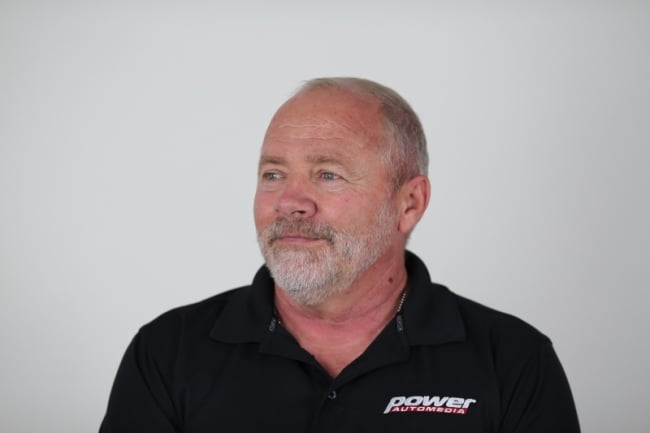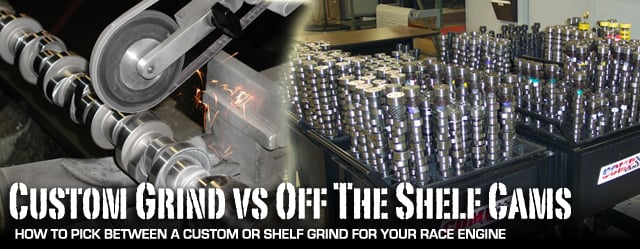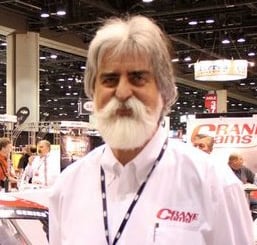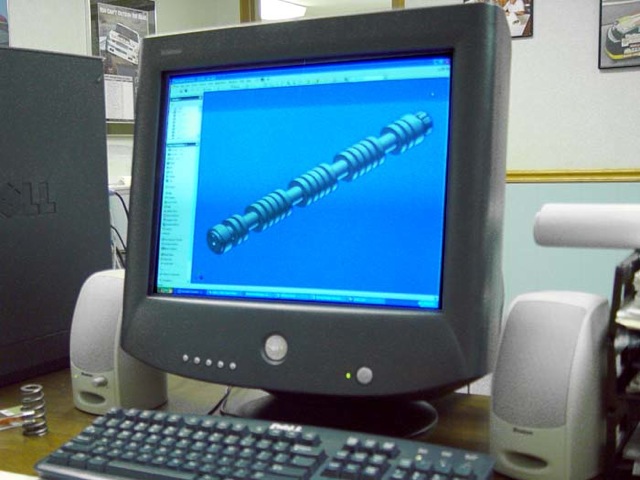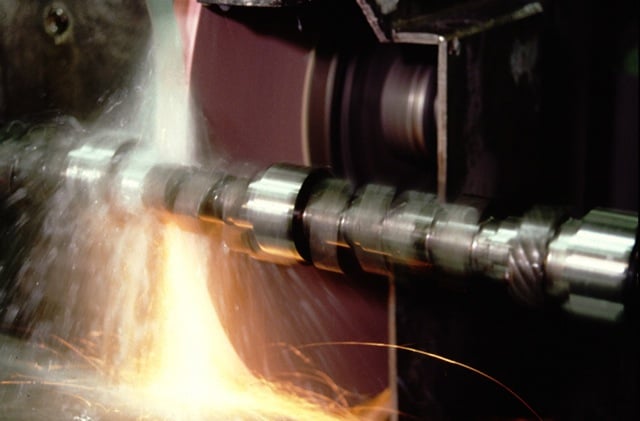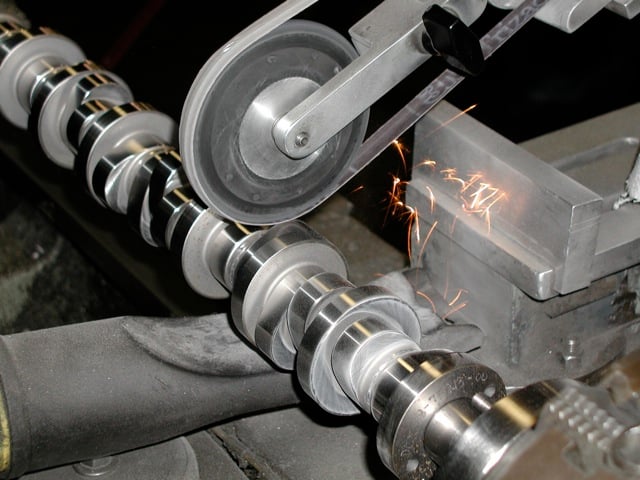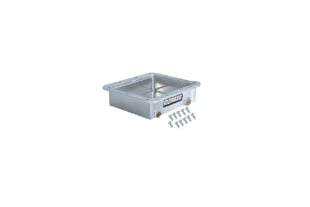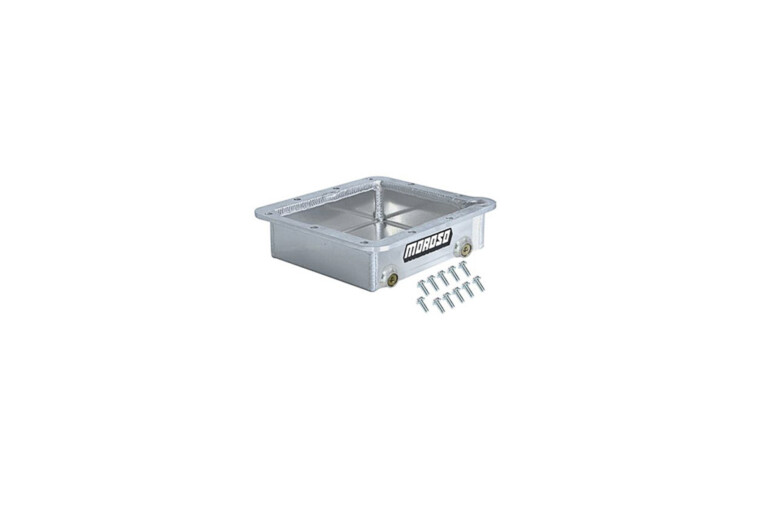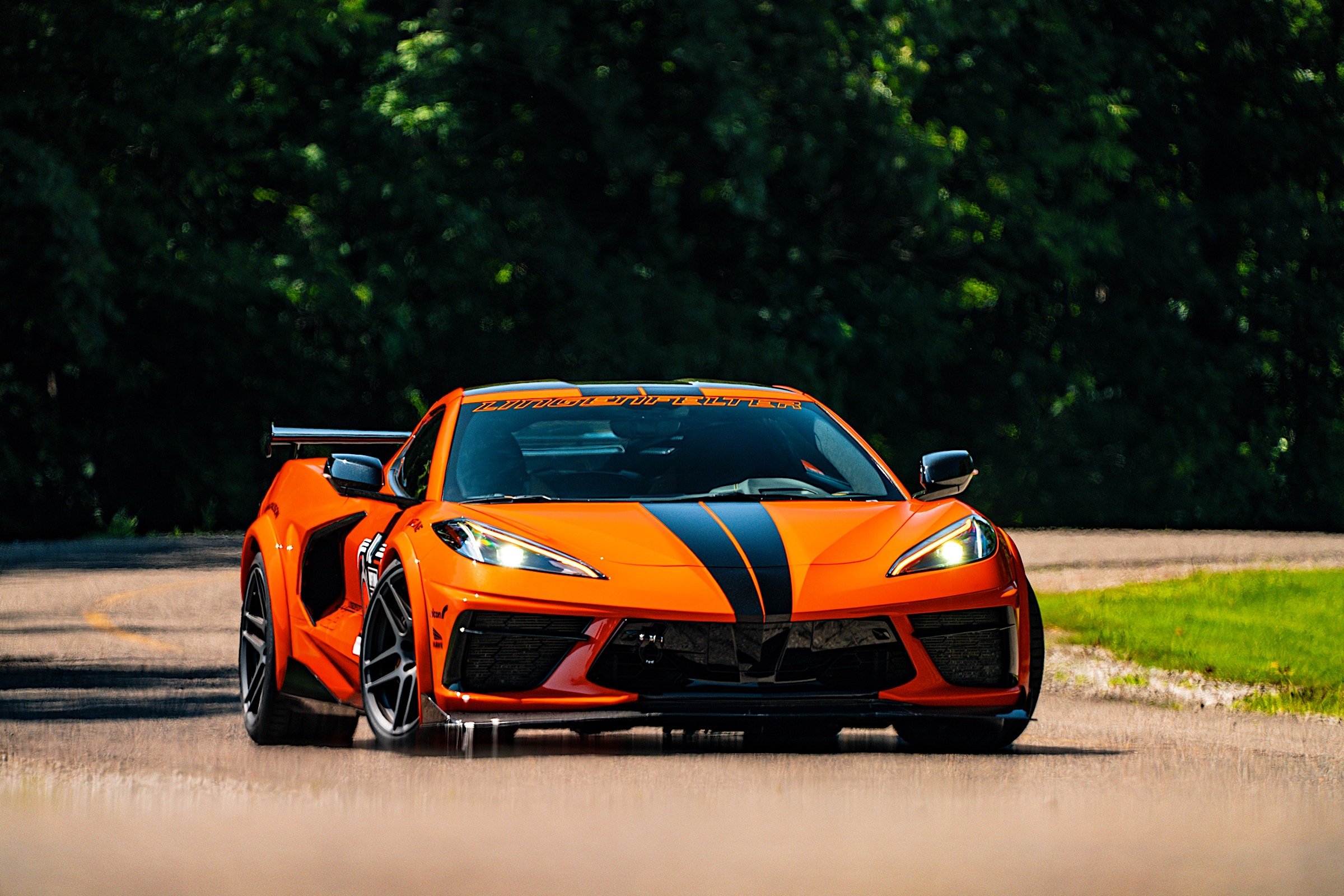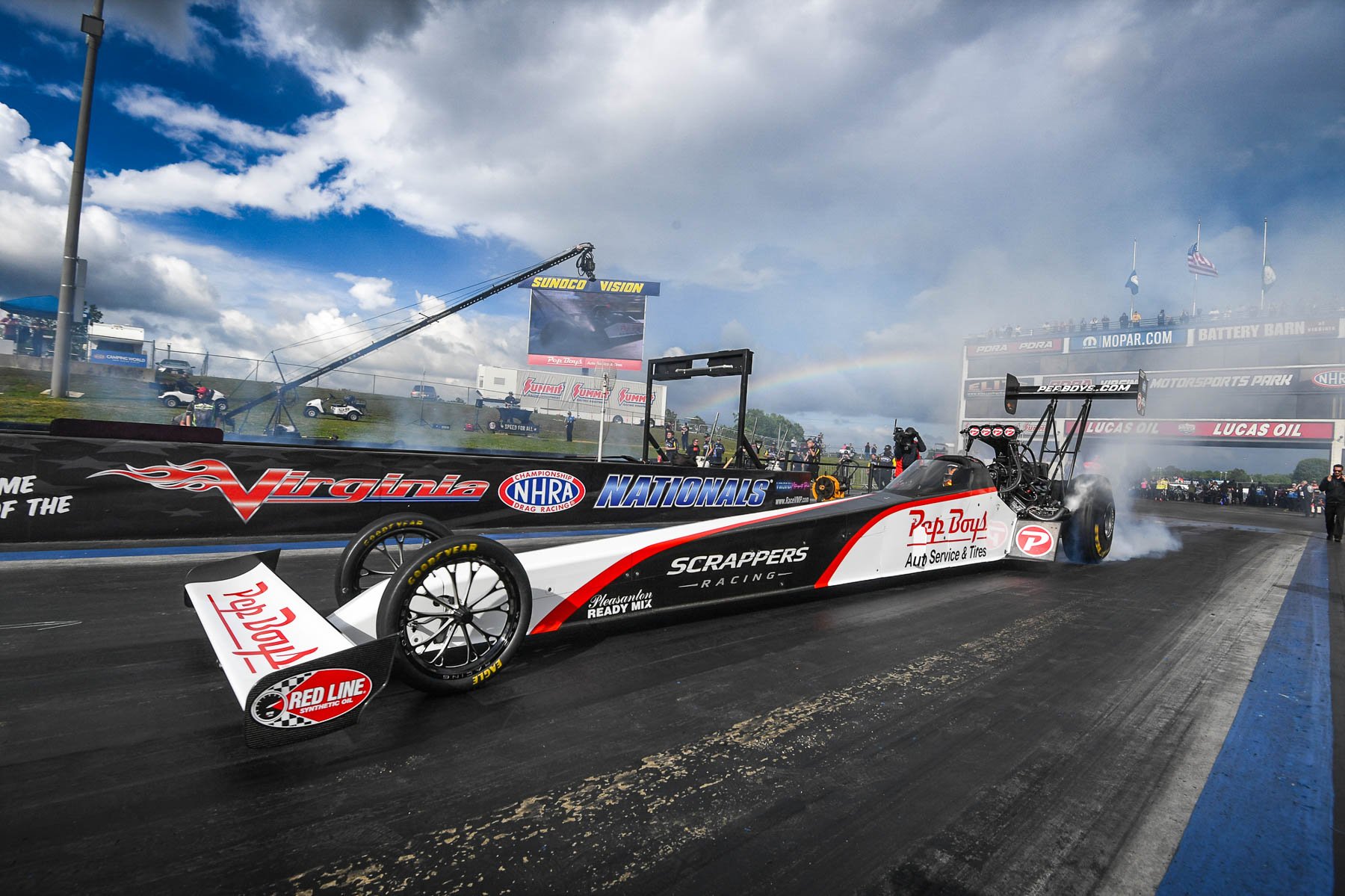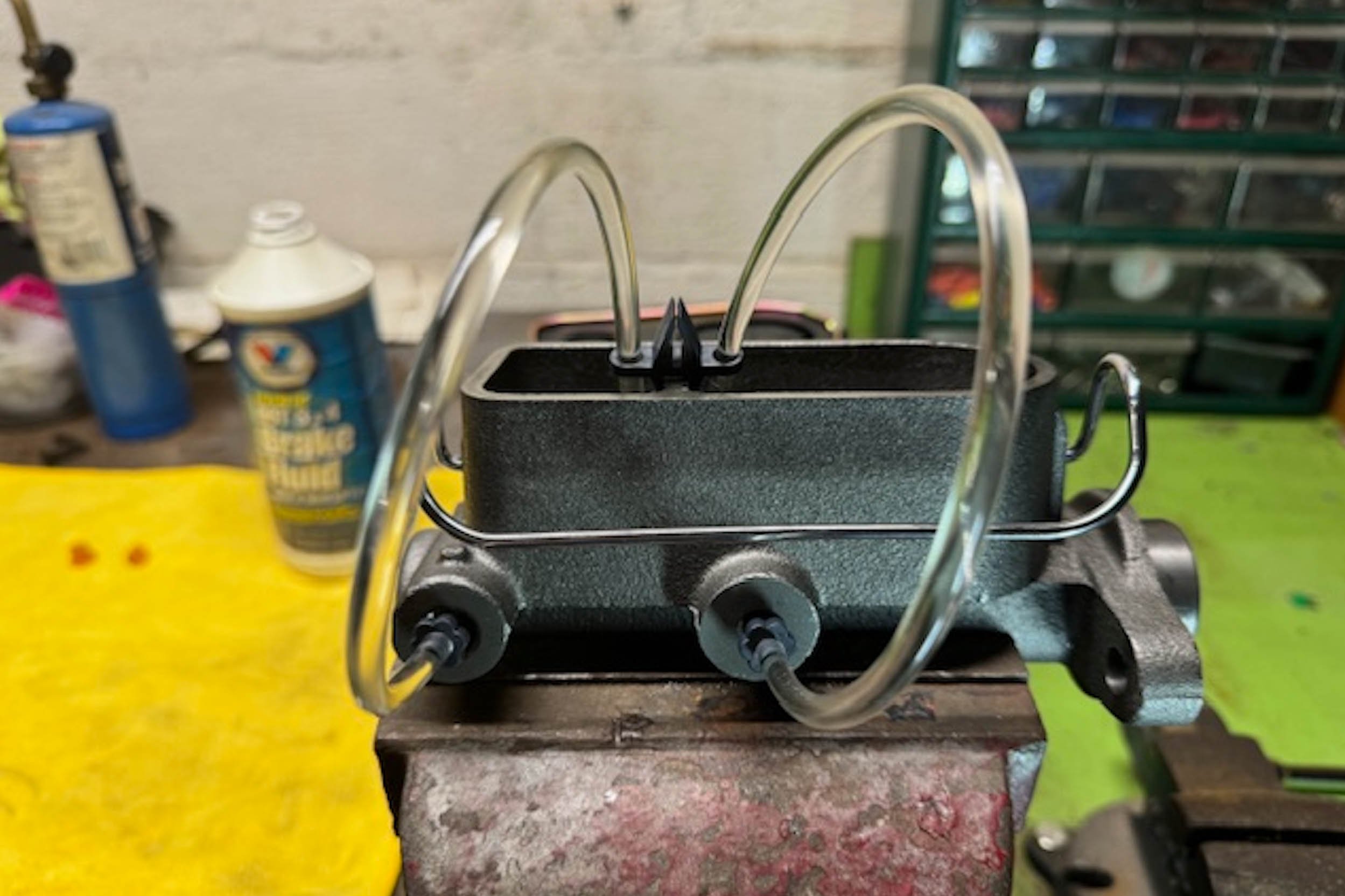Racers are a determined breed that search for every mechanical advantage on the track to race their way into victory circle. In the past, most of their experience is gained by trial and error and multiple efforts. Occasionally, these determined racers will resort to math and science to gain that extra edge.
One could make the debate that, no where else in the engine does mechanical advantage and science matter more than in the valve train. We decided to ask the experts if extra horsepower can be “found” in custom camshafts, or whether the boundaries of cam grinds have already been defined over the past 40 years of modern technology.
According to Crane Cams resident camshaft and valvetrain expert Chase Knight, “There are so many variables in racing, like spec rules, track configurations, track surface conditions, different engines, and car configurations, that a variety of considerations need to be taken into account when selecting the best camshaft for application.”
Why the camshaft plays a vital role in making power.
The profile of a camshaft determines many of the variables that determine the characteristics of an engine. Timing events like when the intake and exhaust valves open, how long the valves stay open, and how quickly the valves open and close are governed by the cam.
Chris Douglas, self professed ‘semi-retired’ racer and longtime Marketing Director for COMP Cams explained the relationship in cam event timing; “camshaft design is not some “black art”, but rather a series of decisions and compromises based on the exact application of the cam.” COMP Cams camshaft technician Jay Adams added, “In today’s world, there are so many different variables available to the end user, it can be like ordering from a list of options on a new car. Things such as bearing journal diameter, firing order, engine block bank angle, and the various valve configurations offered by head manufacturers, have to be addressed when ordering a cam.”
Where the big dollar race teams have been able to “find” extra horsepower in the past has relied on adjusting these variables. A slight overlap in opening and closing valves can help evacuate the combustion chamber of bad gasses which allows the chamber to be filled with more fuel rich gasses. More fuel equals more power. Knight warned however, “if you focus solely on the peak horsepower numbers and not where the torque is at on the power curve, you could end up with an engine that makes big HP numbers, but won’t win in your race car. We focus on torque numbers and where the peak torque is in relationship to horsepower on the curve and balance that with all these other external variables. Everything from how much the car weighs and what kind of drivetrain is in the car.”
The Big Question: Do you need a custom camshaft?
Manufacturing Technology has advanced to the point where anyone that can afford to purchase a high performance “off the shelf” camshaft, can also afford to purchase a custom camshaft. Some companies offer custom cams at no additional costs even. So the question becomes, “Must I have a custom cam to get the most from my race engine?”
While some racers may get help from a custom cam, there are plenty of racers that get the best potential from an off the self cam too, especially those racers using a standard combination like a SBC 355. Knight explained that “Crane Cams has never charged extra for a custom ground camshaft, so it is an option, but you may not need a specially ground cam. We may have a profile on the shelf that can maximize your engine’s capabilities. Working with our technical staff and your engine builder is really the only way to make the best selection in cam profiles.”
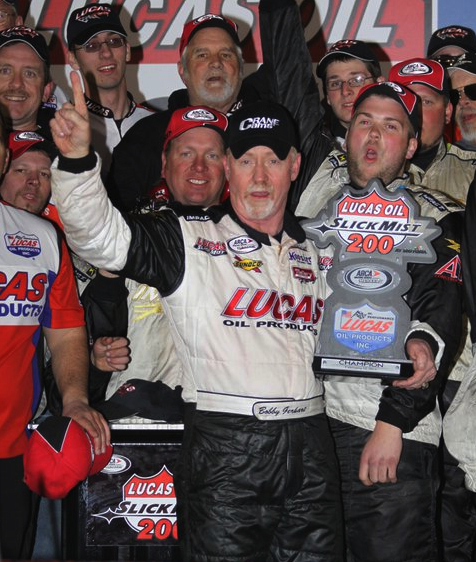
Companies like Crane Cams and COMP Cams work with racers like Bobby Gerhart in their research and development of new cam profiles and products. Image Credit: COMP Cams Facebook Page
Adams agrees,”To a knowledgeable camshaft technician/designer, the real key is developing a good enough rapport with the engine builder or racer to know “how” the engine will be used, what the target RPM range is and so on. This allows the cam technician or cam designer to focus on tailoring the engine to one thing exceptionally well, as opposed to doing a variety of things moderately well.”
Douglas also points out that the relationship between the racer, engine builder and camshaft company should be a critical learning opportunity for racers when selecting a cam profile. “Selecting a camshaft solely based on the fact that it fits your type of engine is a sure recipe for disaster. Because these are extremely specialized components, consulting with your engine builder and camshaft company will help you determine the proper camshaft. Any time you are making this kind of important decision about your engine, it’s smart to understand the reasoning behind the selection.”
Smokey Yunick once explained that building a relationship with a cam company was vital for a racer’s career on the track. According the Smokey, the only way to build that relationship is to call the camshaft companies and talk to them. There will be one, or more, that you feel comfortable with, and you need to stick with that company. These camshaft companies are invested in making sure you get the right cam for your application because they want your business for a lifetime. Besides, they are the experts in a very technical field with years of research and development behind their products.
With all three of our experts in agreement, to determine if you need a custom camshaft to get the most from your engine, you should get together with your engine builder and the camshaft specialist at which ever cam company you are most comfortable with and talk with them about your application and engine combination. There is no magic bullet answer in making the decision on your own.
Speed On And Off The Track
One of the areas where an “off the shelf” cam has a distinct advantage is turn around time. Douglas explained,”The availability and ability to ship the cam immediately can give a ‘shelf’ cam a minor advantage over waiting on a custom ground cam. If the customer is in a hurry, then the shelf cam and all related parts can usually be shipped immediately and sometimes the price point is marginally better on the shelf grinds. COMP doesn’t charge a premium or upcharge for a custom cam, as long as the core doesn’t have to be upgraded due to the design or availability.”
Knight echoes the ability to ship an off the shelf cam quicker, especially in during race season when demand is at it’s greatest, but Knight also added “with over 80,000 cam grinds in our cam library, we can get any grind we’ve ever done turned around quickly. There’s only so much space in a catalog to display the most popular cam profiles, so you can’t rely on the catalog solely when selecting a cam, you really need to call our technical service rep to get accurate time-frames on availability and shipping.”
What’s the 411?
Whether you are ordering a custom cam or an off the shelf cam, there is a certain amount of information that you are going to be expected to provide. If you taken our expert’s earlier advice and consulted with your engine builder and the cam company’s technician, this information will already have been covered. However, if you are a sportsman racer and you build your own engines, you will want to round up some additional information before calling the cam company’s technical assistance line.
Our experts all state that the more information that a customer can provide will go a long way in ensuring that you get the best possible camshaft for your usage. Some of the basic information that you will be need to supply to the camshaft technician is:
- Size and Type of engine
- Compression ratio
- Cylinder head information
- Type of induction (carb & manifold, efi, throttle body, etc)
- Bore size
- Stroke
- Rod length
- Type of transmission
- Intended stall speed of converter (if automatic)
- Gear ratio
- Desired RPM range
- Tire diameter
- Weight of vehicle
- Track specifications
Fine Tuning Your Engine With Cam Selection
Fine tuning a race engine for specific series like a dirt track series, where a spec tire is mandated can be a tough chore. Knight told us that “compounding the problem of trying to fine tune your engine with camshafts to a spec tire or other spec components is that no two dirt tracks are identical. In fact, a single dirt track can experience surfaces changes several times in the course of one race evening.” Adams agreed and explained that “the racing surface can be dependent upon variables such as wind, amount of rain or sunshine throughout the week, and how much water has been put down by the track crew. Having a valve train package that is optimum for all of those conditions is next to impossible.”
In the case of a drag racer that might compete on both 1/8 mile and 1/4 mile tracks, Adams says, “Sometimes it may be necessary to go for the middle of the road, relative to the cam specs and engine rpm range. We can be more specific if the engine always sees the same conditions.”
When A Custom Camshaft Is Warranted, What Improvement Can It Make?
COMP Cams and Crane Cams have been making high performance camshafts for decades, and they’ve designed cams for nearly every possible engine combination that has ever existed. Given the sheer number of cam profiles these companies have in their archives, just about every racer can find an off the shelf cam that fits their needs. However, sometimes a custom designed profile is called for.
For those times when a custom designed cam is needed, the improvement to the powertrain can be significant. “Rather than sacrificing for something that’s good over a broad spectrum, we strive to make a custom camshaft great where it will live its operational life,” says Adams. “Functionally, there is nothing different about the cam itself, it’s all about getting the absolute perfect specs for a particular customers’ needs. One additional advantage of a custom cam is it allows us to consider added processes such as nitriding, micro polishing, etc., that may be right for their specific application.”
Knight explained that camshaft designers at Crane Cams also had “many years worth of research and development in tens of thousands of cam profiles. These ‘shelf’ cams work as well as most custom cams, but when a custom cam is ordered, we focus in on where the peek torque needs to be in the RPM power range for the application. If all you are worried about is the peak horsepower number on a dyno, we can do that too, but you won’t win many races that way.”
Adams added to the caveat “Most of the time it is easier to move the torque throughout the rpm range with a custom cam in race applications because the intended operating RPM range is significantly more narrow than we’d find in a street car. Because you’re custom tailoring the cam to a more narrow RPM range, changing where the cam is degreed in the motor will tend to make more of a dramatic effect and the results tend to be more immediate and more easily felt with a custom grind.”
Understandably, a custom cam can be designed to take advantage of a narrower operating window than a shelf cam that is designed to work in a broader rpm range, and that is where our experts say the biggest advantage of a custom designed camshaft comes into play.
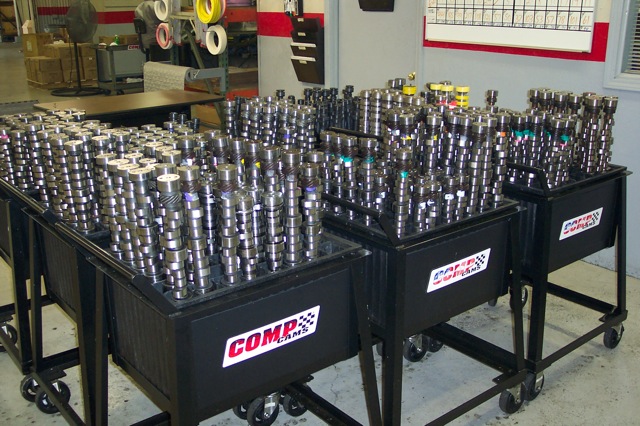
One size does not fit all. COMP Cams and Crane Cams have tens of thousands of different camshaft profiles developed over decades of research and development.
Pitfalls To Avoid
At one time or another, just about every racer has ordered a camshaft that didn’t do what they expected. We asked our experts if there were any pitfalls to avoid when ordering an off the shelf or custom designed camshaft.
Knight told us that it was wise “to call camshaft companies and talk with the technical specialists. These specialists deal with this subject every day and are experts in the field of camshaft selection. Whether you are a NASCAR Sprint Cup team, NHRA racer, or a weekly racer at the local track, you are going to get the same quality advice.”
Adams supported the principal of including the camshaft technician and engine builder in the selection to avoid some of the most commonly seen pitfalls, but that can open the door for another problem, “It can be easy to omit something when placing the order, especially when several people are involved. Therefore it is important to be precise.” He went on to say, “A lot of people get stuck in ‘one size fits all syndrome.’ Something that might work well in a 3600 pound street car may not be optimum in a 3150 pound bracket racer, or a 6000 pound 4 wheel drive truck. The selection of an off the shelf cam is as much about the application as it is about the compression ratio and size of the engine. The wrong off the shelf cam will not so much rob horsepower as it will diminish the torque if it does not match the weight, usage, and RPM range of the vehicle.”
Conclusion
With the years of R&D the camshaft companies have invested, and continue to pour into cam design, it is very possible to win races straight out of the box with an “off the self” cam grind. Many times the shelf grind works so well that it challenges a cam maker to grind a profile that does much better.
Talking with Chase Knight of Crane Cams, Chris Douglas and Jay Adams of COMP Cams enlightened us to the wide variety of cam grinds on the shelves at these companies. Our conversations also brought to light the necessary involvement of engine builder and cam technician when selecting the right camshaft.


